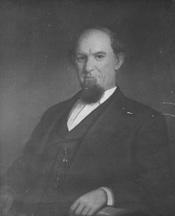Sake Quotes - Page 4

William Blake (2008). “The Complete Poetry and Prose of William Blake”, p.39, Univ of California Press
Intentions "The Critic as Artist" pt. 2 (1891)
If you seek authenticity for authenticity's sake you are no longer authentic.
Jean-Paul Sartre (1992). “Notebooks for an Ethics”, p.4, University of Chicago Press
J.C. Ryle (2015). “The Upper Room: Biblical Truths For Modern Times”, p.28, Whitaker House
No man can ever be secure until he has been forsaken by Fortune.
Boethius (2012). “The Consolation of Philosophy”, p.18, Courier Corporation
To forsake sin, is to leave it without any thought reserved of returning to it again.
William Gurnall (1821). “The Christian in Complete Armour: Or, A Treatise on the Saints' War with the Devil, Wherein a Discovery is Made of the Policy, Power, Wickedness, and Stratagems Made Use of by that Enemy of God and His People : a Magazine Opened, from Whence the Christian is Furnished with Spiritual Arms for the Battle, Assisted in Buckling on His Armour, and Taught the Use of His Weapons, Together with the Happy Issue of the Whole War”, p.373
We ought to love our Maker for His own sake, without either hope of good or fear of pain.
Miguel de Cervantes Saavedra (1993). “Don Quixote”, p.216, Wordsworth Editions
Henry Mayhew (2012). “The London Underworld in the Victorian Period: Authentic First-Person Accounts by Beggars, Thieves and Prostitutes”, p.57, Courier Corporation
Saint Teresa (of Avila) (1966). “The Letters of Saint Teresa of Jesus”
Epictetus, Marcus Aurelius, Lucius Annaeus Seneca (2016). “Stoic Six Pack: Meditations of Marcus Aurelius, Golden Sayings, Fragments and Discourses of Epictetus, Letters from a Stoic and The Enchiridion”, p.95, Enhanced Media Publishing
Caroline Myss (2013). “Invisible Acts of Power: The Divine Energy of a Giving Heart”, p.117, Simon and Schuster
Boris Nikolayevich Yeltsin (1994). “The View from the Kremlin”, HarperCollins
We should love others truly, for their own sakes rather than our own.
Saint Thomas (Aquinas) (1955). “Theological texts”






